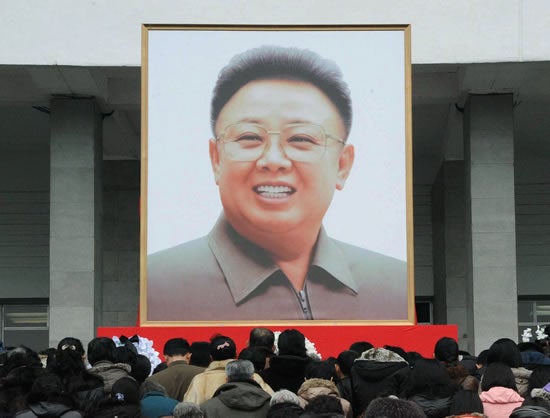Cuba, North Korea, and Vaclav Havel
Ray Walser /
On learning of the death of Kim Jong-il, Cuban authorities immediately declared three days of official mourning. Their action underscored longstanding ties of intimacy between two of the world’s most oppressive, most anti-American regimes.
The death of North Korea’s tyrant also evoked a feeling that the Cuba of Fidel Castro, age 85, and reigning leader Raul Castro, age 80, will soon be overtaken by the passage of time, ushering in fresh and similar regime uncertainties.
Independent-minded Cuban blogger Yoani Sanchez sees deep parallels: “genealogy has been more determinate than ballot boxes, and the heritage of blood has left us—in 53 years—only two presidents, both with the same last name. The dauphin over there is named Kim Jong-un; perhaps soon they will communicate to us that over here ours will be Alejandro Castro Espin [Raul Castro’s only son and possible heir].”
Unlike North Korea, which remains remote and distant from the U.S. and the West, Cuba continues to enjoy the benefits of travel and tourism despite its inhospitable political climate. According to Cuban authorities, the island will receive more than 2.5 million visitors in 2011, many from the U.S., who have taken advantage of Obama-era travel concessions.
Yet, the stagnant and repressive political system grinds on, and the regime shows no signs of loosening its grip. It lashes out viciously at small groups of activists who dare protest the absence of democracy, such as a December 2 roundup of 46 dissidents, and complains loudly about intrepid protesters who pulled off a fireworks display off the coast of Havana to protest human rights violations.
Sadly, friends of Cuban liberty mourn the passing of former Czech anti-Communist dissident and ex-President Vaclav Havel, the antithesis of a Kim Jong-il or a Castro.
In a full lifetime, Havel never shied away from support for dissidents, democracy, and freedom in Communist Cuba. On travel to Cuba, he was firm: “I don’t think we can go to Cuba and lie sunning on the beach, having a good time and enjoying a drink, without noticing what is going on around us.”
Today’s neo-realists in the White House and State Department prefer relative silence when it comes to Cuba’s 50-plus years of dictatorship. They seek good relations with a regime that admires the regimentation of North Korea rather than the freedom of the United States. Yet, as former Secretary of State Madeleine Albright observed in eulogizing Havel’s life and actions, “the urgency in his [Havel’s] voice came less from lofty expectations of human character than from the distress he felt at those who accepted injustice simply because it was easier to look away than to resist.”

